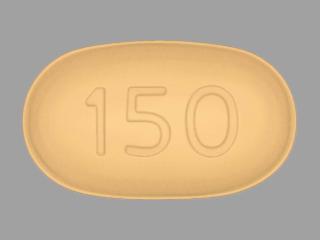Solriamfetol Disease Interactions
There are 3 disease interactions with solriamfetol.
Solriamfetol (applies to solriamfetol) cardiovascular toxicities
Moderate Potential Hazard, Moderate plausibility. Applicable conditions: Cardiovascular Disease, Heart Disease
Solriamfetol increases systolic blood pressure, diastolic blood pressure, and heart rate in a dose-dependent fashion. It is recommended to exercise caution when treating patients at higher risk of cardiovascular toxicities, particularly patients with known cardiovascular and cerebrovascular disease, preexisting hypertension, and patients with advanced age. Assess blood pressure and control hypertension before initiating treatment and monitor blood pressure regularly during treatment. Periodically reassess the need for continued therapy with solriamfetol and treat new-onset hypertension and exacerbations of preexisting hypertension according to clinical guidelines. If a patient experiences increases in blood pressure or heart rate that cannot be managed with dose reduction or other appropriate medical intervention, consider treatment discontinuation.
Solriamfetol (applies to solriamfetol) psychiatric effects
Moderate Potential Hazard, Moderate plausibility. Applicable conditions: Psychosis, Anxiety/Stress
The use of solriamfetol may cause adverse psychiatric reactions, including anxiety, insomnia, and irritability. It is recommended to exercise caution when treating patients who have a history of psychosis or bipolar disorders. Observe patients treated with solriamfetol for the possible emergence or exacerbation of psychiatric symptoms and consider dose reduction or discontinuation of treatment.
Solriamfetol (applies to solriamfetol) renal dysfunction
Moderate Potential Hazard, Moderate plausibility. Applicable conditions: Psychosis, Cardiovascular Disease
The primary route of solriamfetol elimination is via urinary excretion. Dosage adjustment is not required for patients with mild renal impairment. Dosage adjustment is recommended for patients with moderate to severe renal impairment. Solriamfetol is not recommended for patients with end-stage renal disease. An average of 21% of solriamfetol is removed by hemodialysis. Patients with moderate or severe renal impairment may be at a higher risk of increases in cardiovascular adverse events and psychiatric symptoms because of the prolonged half-life.
Switch to professional interaction data
Solriamfetol drug interactions
There are 81 drug interactions with solriamfetol.
More about solriamfetol
- solriamfetol consumer information
- Check interactions
- Compare alternatives
- Reviews (85)
- Side effects
- Dosage information
- During pregnancy
- Drug class: miscellaneous central nervous system agents
- Breastfeeding
- En español
Related treatment guides
Drug Interaction Classification
| Highly clinically significant. Avoid combinations; the risk of the interaction outweighs the benefit. | |
| Moderately clinically significant. Usually avoid combinations; use it only under special circumstances. | |
| Minimally clinically significant. Minimize risk; assess risk and consider an alternative drug, take steps to circumvent the interaction risk and/or institute a monitoring plan. | |
| No interaction information available. |
See also:
Further information
Always consult your healthcare provider to ensure the information displayed on this page applies to your personal circumstances.


